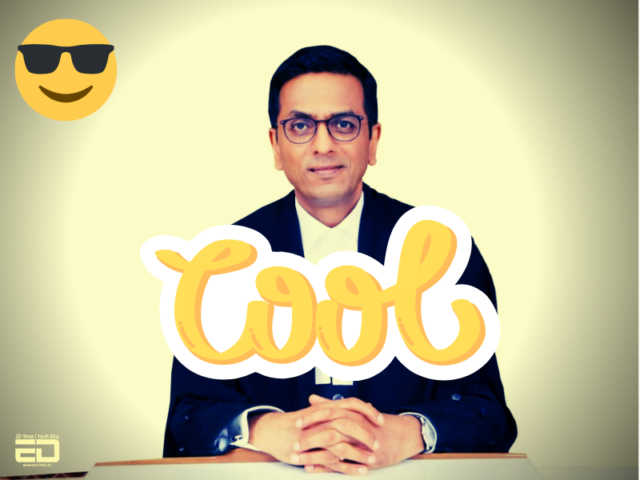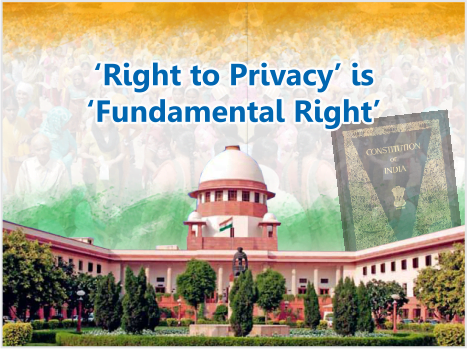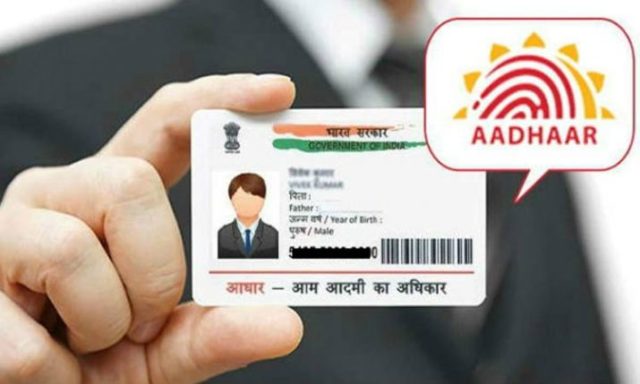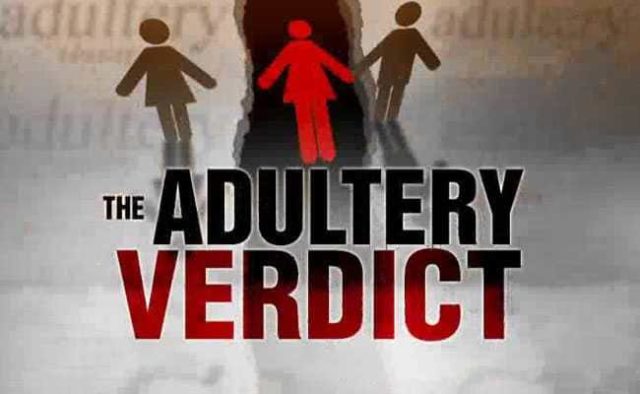Justice DY Chandrachud is nothing less than a ‘rock star’ of the legal circle because of his verdicts and dissents which mostly revolve around individual rights, personal freedom, as well as on an libertarian interpretation of the constitution.
He is often that one person who always sticks to justice and doesn’t worry about the consequences of doing so.
For a lot many reasons, not only are his dissenting verdicts ‘lit’, even his judgement on majority verdicts are truly captivating.
Who is Justice D. Y. Chandrachud?

Justice D.Y. Chandrachud
Justice D.Y. Chandrachud is the son of the longest serving Chief Justice- Y. V. Chandrachud, who served as the CJI for 7 long years. The fact that Justice Chandrachud junior has even over ruled his father’s judgments (twice) is what puts many people at awe.
Justice D. Y. Chandrachud was appointed a judge in 2000, even before he had turned 42. Before being elevated to the Supreme Court, he had served in the Bombay High Court for 13 years and as the Chief Justice of the Allahabad High Court in 2013. He is expected to become the CJI in 2022.
Here are some of his most famous verdicts which makes 2022 worth waiting for.
Right to Privacy case

Earlier, Right to Privacy was not recognized as a Fundamental Right. A nine judge bench of Supreme Court judges changed this in 2017.
Justice Chandrachud, wrote in a separate judgment stating that Right to Life and Personal Liberty are not creations of the constitution but are “recognized by the constitution as inhering in each individual as an intrinsic and inseparable part of the human element which dwells within” and are essential for a dignified human existence.
What made this verdict special was that he overruled his father’s judgement on privacy that was made 41 years ago.
Also Read: Has Aadhaar Become A Joke With The Latest SC Judgement On The Matter?
Dissent on Aadhaar Act
The Aadhaar Act provides targeted delivery of subsidies and benefits to individuals residing in India by assigning them unique identity numbers, called Aadhaar numbers.
It was passed as a money bill in the Lok Sabha. (A money bill cannot be rejected by the Rajya Sabha.)
When the legality of the Aadhaar Act was being challenged in the court, Justice Chandrachud bravely dissented and said – “Constitutional guarantees cannot be compromised by vicissitudes of technology”.
He also said the passing of it as a money bill was a “fraud on the Constitution” and warned that the Speaker of Lok Sabha’s decision of classifying it as a money bill could be subjected to judicial review in the future.

Justice Chandrachud pointed out that there are not enough robust safeguards for citizens to informed consent or for people to opt-out from Aadhaar. He warned that this kind of mass profiling has the “potential for surveillance”.
The government had made Aadhaar mandatory to avail the benefits of several government schemes. To this he objected saying that denying social welfare measures in the absence of an Aadhaar number violated the fundamental rights of the citizens.
He also marked that seeding Aadhaar with every database will pose a grave threat to privacy, liberty, as well as autonomy of the people.
Hadiya Marriage Case
Kerela High Court had annulled the marriage of Hadia on the suspicion of ‘forced consent’ (love Jihad).
The judges of Kerala High Court had had controversially observed that Hadia being a 24 years old girl “is weak and vulnerable, capable of being exploited in many ways” and “her marriage being the most important decision in her life, can also be taken only with the active involvement of her parents”.
According to Justice Chandrachud, the HC had breached Hadiya’s constitutional rights, crossed its boundary and had “entered into prohibited terrain”.
He further added, “how Hadiya chooses to lead her life is entirely a matter of her choice”, thus laying emphasis on respecting one’s personal choice.
On Adultery

Until September, 2018, adultery by a married woman was a crime while the opposite was not.
Justice Candrachud changed this stating “the guarantee of life and personal liberty as an essential recognition of dignity, autonomy and privacy and above all gender equality as a cornerstone of a truly equal society”.
What made his verdict special was that he had overruled the judgement of his father, 33 years after the latter had given his verdict.
In 1985, Justice Chandruchud’s father (who was then the Chief Justice of India) dismissed the petition challenging the validity of adultery saying that the “stability of marriages is not an ideal to be scorned”.
Bhima-Koregaon Activists
When 5 human rights activists were labelled as urban naxals and were prosecuted, Justice Chandrachud in his minority judgement, labelled the prosecution as “criminal”.
He took into consideration the grievance of the 5 people and worried if their voices are being silenced by running a criminal prosecution against them.
CJI Gogoi sexual assault case
Recently, a woman has accused the serving CJI Ranhan Gogoi of sexual harassment. When the SC looked into the matter, the woman was not included in the proceedings and was also denied a lawyer.
Justice Chandrachud had written a letter after consulting more than 17 judges of the SC, asking the three member panel that was probing into the matter to not proceed without the woman complainant who has withdrawn from the proceedings because she found herself unlikely of getting justice.
These are only some of his numerous remarkable verdicts. It is probably Justice Chandrachud’s deep understanding of the constitutional values as well as a befitting observation of the evolving society that makes his verdicts so remarkable and his tenure as the Chief Justice of India worth anticipating for.
Image Credits: Google Images
Source: PRS, The Wire, Indian Express
Find the blogger @parihar_tweets
You’d also like to read:






























